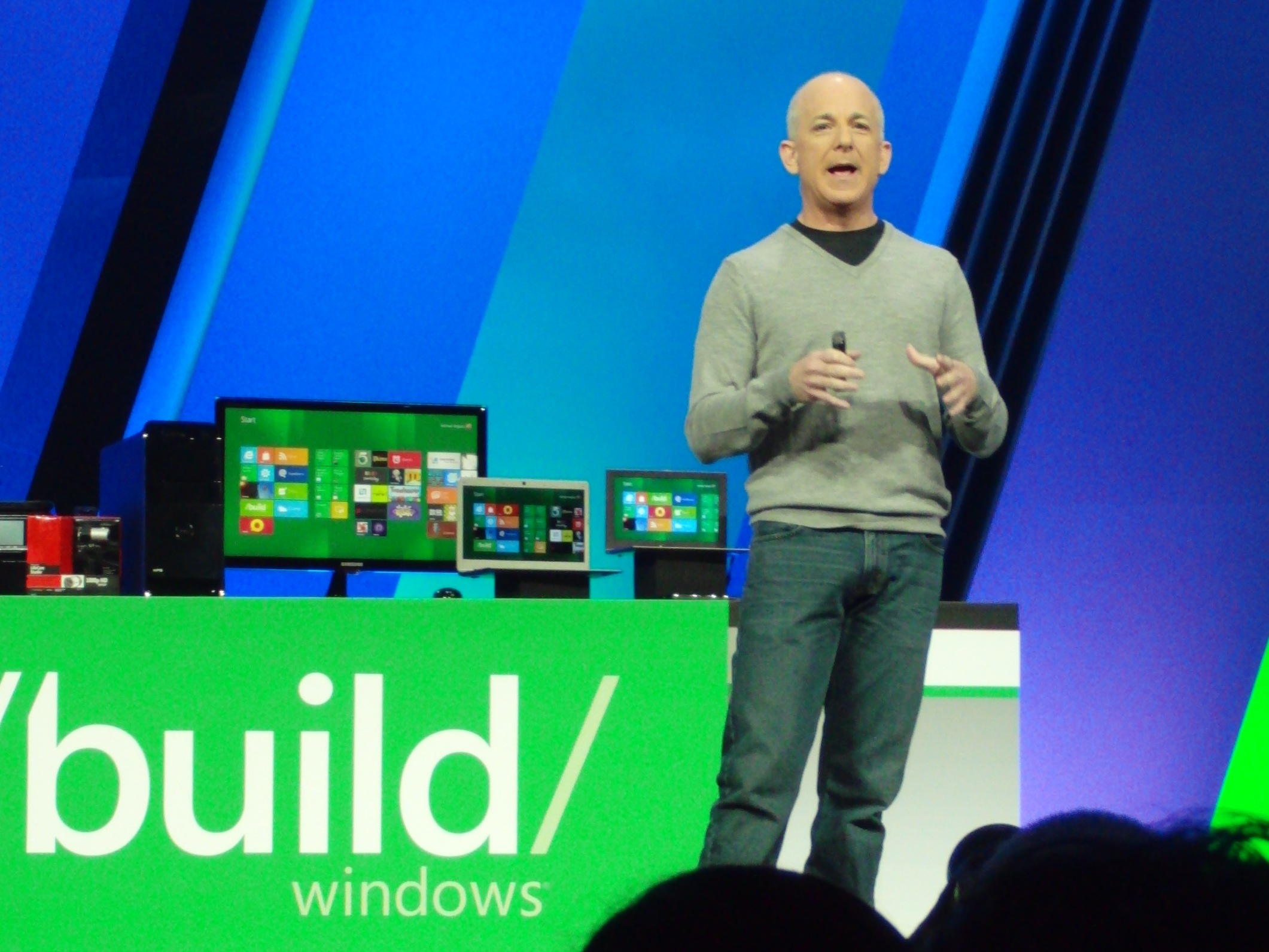
It's been a big, big, big, big week for Windows fans: Microsoft has finally unveiled its forthcoming Windows 8, the most significant upgrade since we went from Windows 3.x to Windows 95.
There's a new user interface, called Metro; support for new hardware, including ARM-powered tablets; massively improved performance and boot times; and proper touchscreen support.
Microsoft's Steven Sinofsky is the president of the Windows division, and he sat down with Mary Branscombe to explain the big picture: "We envision an operating system that scales from small form factor keyboard-less tablets all the way up to the high end," he told us in an exclusive interview. "It's an incredibly bold vision and one we're executing on."
Windows 8 isn't a cut-down Windows; your Windows 7 apps will run quite happily. "We looked around and we don't see these apps being replaced by something else," Sinofsky says. "The technology that produced these is not an accident; people have problems to solve and they developed tools to solve those problems."
The exception is on ARM-powered devices such as Tegra tablets, which won't support older Windows apps. "Those apps don't take advantage of all the things that make ARM a unique offering," Sinofsky says. "The reason you use the ARM chip is that you want great power management, like Connected Standby. An x86 app doesn't respect standby so the app is going to just drain the battery."
A new Microsoft
Windows 8 isn't just a new operating system: it's a new Microsoft too. That's what CEO Steve Ballmer reckons, anyway. "If Windows 8 is Windows reimagined, we're also in the process, and Windows 8 is an important step of that, of reimagining Microsoft," he said, giving us a great excuse to dig out footage of the legendary "Developers! Developers! Developers!" shout-fest.
Windows 8 certainly sounds impressive, but what's it actually like in the real world? We sent tech guru Mary Branscombe to kick Windows' tyres, to check for blue smoke on start-up and to poke it with her special software spanners in our Hands on: Windows 8 review.
Sign up to the TechRadar Pro newsletter to get all the top news, opinion, features and guidance your business needs to succeed!
Her verdict? "At this stage there are certainly rough edges, but the Windows 8 experience is also extremely compelling and genuinely innovative." We'd strongly recommend reading the whole article, which covers everything from Windows 8 hardware to handwriting recognition.
Belgium vs spoons
Of course, Windows doesn't exist in isolation: it's in a world where Windows 7 is enormously popular, and where Mac OS X Lion is tempting people away from the Windows world.
How does Windows 8 stack up in that company? Gary Marshall fired up the TechRadar Compare-O-Meter: "Windows 7 was really Windows Vista done properly, but the move to Windows 8 is something else entirely," he says. "If you currently own and like Windows 7, we think you'll want to upgrade."
But is it better than Lion? "That's a bit like asking whether Belgium is better than spoons, or whether jazz is better than chess," Marshall says. "The two OSes are designed to do very different things... what we think Windows 8 has that Windows 7 perhaps didn't is the wow factor, the iPad-y desirability that Apple fans know so well. It's early code and it's still evolving, but from what we've seen so far we're very excited."
If you're excited too, you don't need to wait until 2012 to get your hands on Windows 8: you can download the developer preview of Windows 8 right now, for free, although of course we wouldn't recommend running it on any critical kit.
To find out where to get it, how to install it and what to watch out for, check out our in-depth Windows 8 installation guide.
The TechRadar hive mind. The Megazord. The Voltron. When our powers combine, we become 'TECHRADAR STAFF'. You'll usually see this author name when the entire team has collaborated on a project or an article, whether that's a run-down ranking of our favorite Marvel films, or a round-up of all the coolest things we've collectively seen at annual tech shows like CES and MWC. We are one.